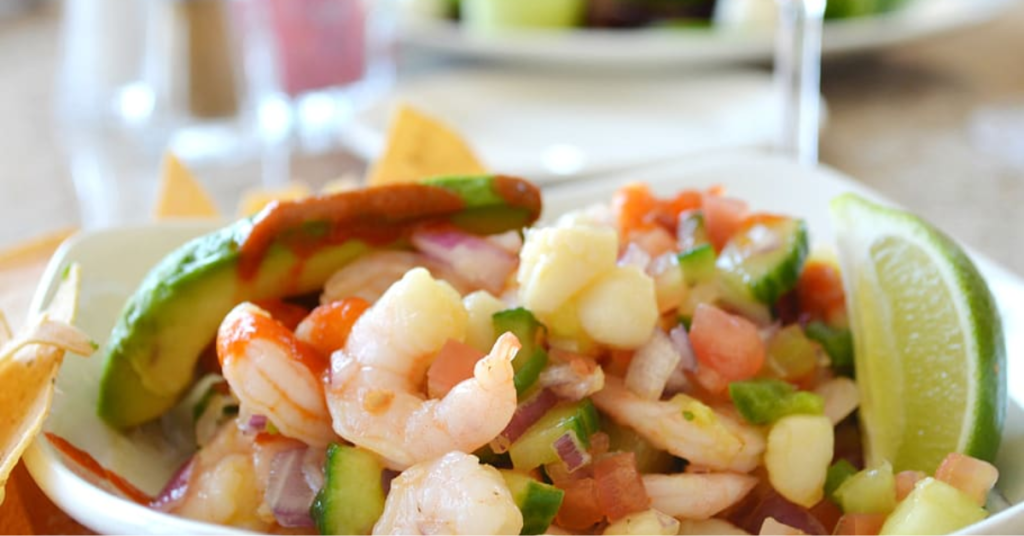Ah, pregnancy – that magical time when every morsel you eat comes with a side of “Should I really be eating this?” Among the many foods up for debate, ceviche is often top of the list for many moms-to-be. This tantalizing dish, packed with fresh fish and zingy citrus, is undeniably tempting. But when you’ve got a bun in the oven, it raises a big question: can you eat ceviche while pregnant?
In this deep dive, we’ll sift through the concerns, the research, and the realities of indulging in ceviche during those precious nine months. By the end, you’ll be armed with the knowledge you need to satisfy your cravings responsibly.
What is Ceviche?
Ceviche, pronounced seh-VEE-chay, is an iconic dish that finds its roots in the coastal regions of Latin America, with particular fame in countries like Peru, Mexico, and Ecuador. But what exactly does this tantalizing dish entail?
At its core, ceviche is a celebration of fresh seafood. Typically, raw fish – often sea bass, tilapia, or shrimp – is the star of the show. However, variations can feature other seafood delights like octopus, scallops, or even squid. What sets ceviche apart from other raw seafood dishes, like sushi, is its marination process. The fish or seafood is cured in freshly squeezed citrus juices, primarily lime or lemon. This acidic bath doesn’t technically “cook” the fish in the way heat does, but it does alter the proteins in the seafood, rendering it firmer and opaque, much like the effect of cooking.
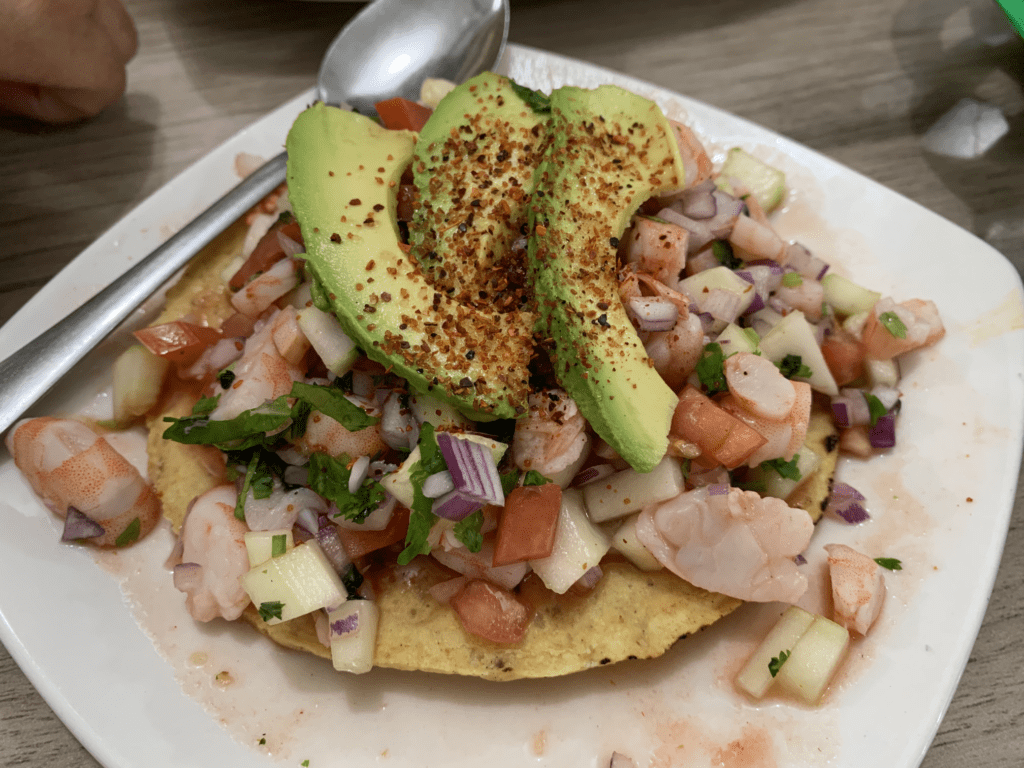

But ceviche isn’t just about fish and citrus. It’s a symphony of flavors. Added to the mix are finely chopped onions, tomatoes, cilantro, and sometimes, spicy chilies. The result? A dish that’s as vibrant in taste as it is in appearance.
Now, with the base understood, variations of ceviche are endless. Depending on the region, you might find ceviche with sweet potatoes, corn, or even tropical fruits like mango and pineapple. It’s a testament to the dish’s adaptability and the rich culinary traditions it springs from.
Is It Safe To Eat Ceviche When Pregnant?
Ah, pregnancy! A journey filled with excitement, anticipation, and a seemingly never-ending list of dos and don’ts. Among the burning questions is the one about your favorite tangy dish: ceviche. Can you indulge in this delicious treat, or should you hold off for now?
Raw and Undercooked Seafood: The Concerns
The big deal with ceviche, and some other seafood delights, is that they’re typically raw. Now, raw fish, while delicious, can sometimes be a playground for some uninvited guests: bacteria and parasites. No one wants to deal with these party crashers on a good day, let alone when they’re expecting!
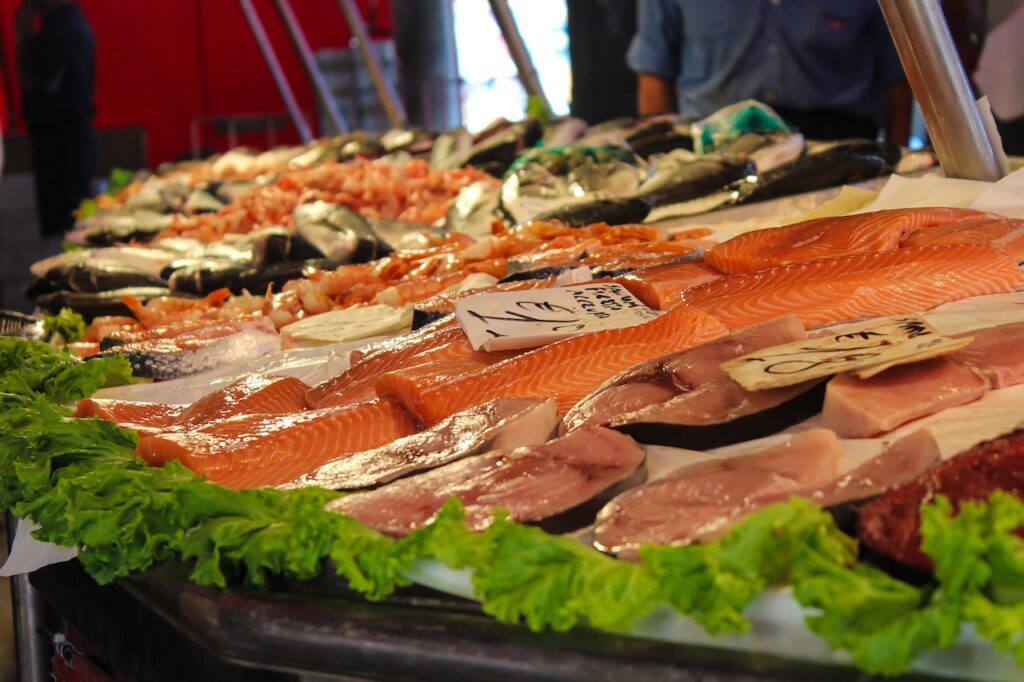

Imagine bacteria like Listeria monocytogenes or the parasite Toxoplasma gondii sneaking into your system. They could trigger illnesses that aren’t just a simple bout of food poisoning. When you’re pregnant, these could lead to complications ranging from premature delivery to, in unfortunate cases, stillbirth.
But, Wait! What About the Citrus Magic?
Ah, the tangy, zesty marinade! One might hope that the citrus in ceviche plays the knight in shining armor, banishing all harmful critters. Sadly, while it does throw a few punches, it doesn’t knock out every contender. The acidic bath can reduce some bacteria, sure, but certain stubborn parasites might just ride the wave. So, solely depending on citrus for safety might be a tad optimistic.
What’s a Ceviche-Loving Momma To Do?
Health gurus and big names like the American Pregnancy Association and CDC whisper words of caution in our ears: maybe steer clear of raw or undercooked seafood when you’re expecting. But fear not! Your ceviche cravings can still be satiated:
- Cooked Ceviche: Sounds odd, right? But, trust me, it’s a thing! Gently cook the fish first and then let it dance in the citrus marinade. You get all the flavor without the raw fish worry.
- Go Green with Veggie Ceviche: Ditch the fish, and dive into a world of avocado, corn, tomatoes, and other vibrant veggies, all soaked in that signature citrusy goodness.
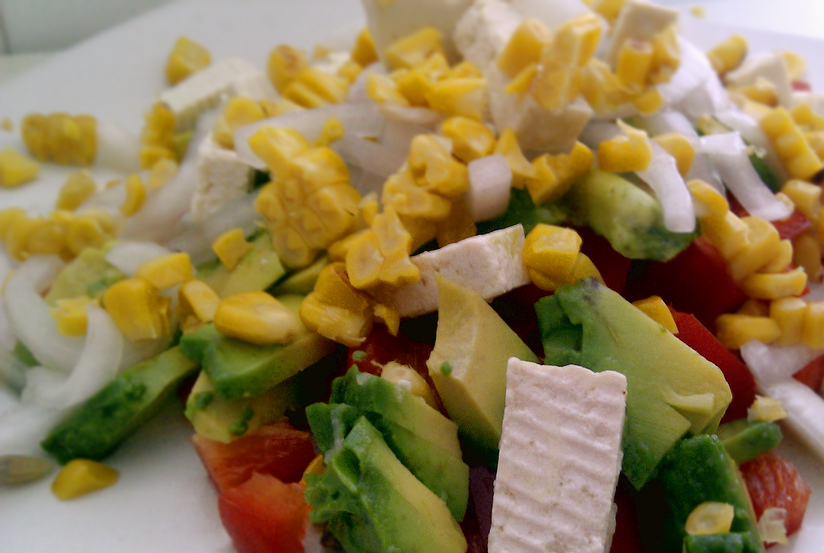

To wrap it up, pregnancy might mean putting some of your foodie adventures on pause. When it comes to ceviche, it’s always best to play it safe. And when in doubt, chat with your doctor. They’ve got your back!
Risks Of Eating Ceviche While Pregnant
Pregnancy, with its glow and baby kicks, also brings with it a heightened sense of caution. Every bite you take, every move you make, you’re not just thinking for one, but for two. So, when your cravings lean towards that bowl of fresh ceviche, it’s crucial to understand the potential risks lurking underneath those citrusy layers.
1. Listeriosis: The Unwanted Guest
Listeria monocytogenes, a bacteria often found in unpasteurized dairy products, processed foods, and yes, raw seafood, can lead to an infection known as listeriosis. For an expecting mom, this could result in fever, muscle aches, and other flu-like symptoms. But the stakes are higher for the little one; complications can include miscarriage, premature delivery, and even neonatal death.


2. Mercury Levels: The Silent Predator
Certain fish, especially larger predators, can accumulate significant levels of mercury in their bodies. Regular intake of high-mercury fish can impact the baby’s nervous system development. While ceviche can be made from various fish types, it’s essential to be aware of the primary ingredient’s mercury content.
3. Parasitic Infections: The Unseen Threat
While the vibrant citruses in ceviche can reduce bacterial count, they’re not always as effective against parasites. Consuming raw fish might introduce parasites like Anisakis, which can cause gastrointestinal discomfort and allergic reactions.
4. Food Poisoning: A Rollercoaster You Didn’t Sign Up For
Raw seafood, if not stored or handled properly, can be a breeding ground for various pathogens. Falling ill from food poisoning can lead to dehydration, which isn’t something any mom-to-be wants to face. Plus, certain foodborne illnesses can directly affect the baby.


5. Nutritional Imbalance: The Hidden Con
While fish is a fantastic source of omega-3 fatty acids, essential for baby’s brain development, relying too heavily on ceviche might mean missing out on other crucial nutrients. Balance is key in pregnancy, and overindulgence in one food type can tip those scales.
Sure, ceviche is a delectable treat with its tantalizing blend of fresh fish, tangy citruses, and crunchy veggies. But, when you’ve got a bun in the oven, it might be a dish best savored with caution, if at all. Always remember: when in doubt, consult with your healthcare provider.
How to Make Ceviche Safe for Pregnancy?
Ceviche, with its dance of zesty flavors, is hard to resist. And just because you’re expecting doesn’t mean you have to completely forgo this beloved dish. With some tweaks and cautionary steps, you can still indulge your ceviche cravings while ensuring your baby’s safety.
1. Opt for Cooked Fish: The Best Alternative
One of the most straightforward ways to enjoy ceviche during pregnancy is to use cooked fish. By cooking the fish before marinating it in the citrus mix, you eliminate many of the risks associated with raw fish. The texture might be slightly different, but you’ll still get to relish the characteristic flavors of ceviche.
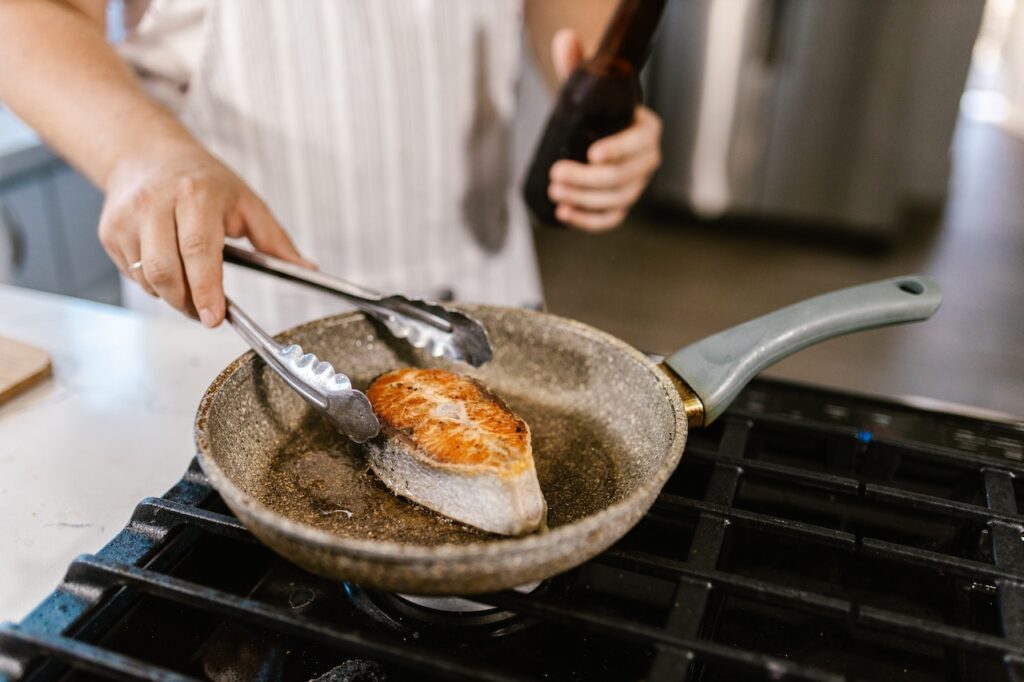

2. Choose Low-Mercury Fish: Play Safe
Stay informed about which fish are lower in mercury. Options such as shrimp, tilapia, salmon, or trout can be great alternatives to higher-mercury fish. By being selective with your fish choice, you reduce the potential risks to your unborn child.
3. Freshness is Key: The Golden Rule
Always ensure that the fish you’re using is fresh. Buying from reputable sources, checking for clear eyes and a sea-like odor, can help ascertain the fish’s freshness. Fresh fish reduces the chance of bacterial or parasitic contamination.
4. Freeze First: An Extra Layer of Safety
By freezing the fish before preparing the ceviche, many parasites that might be present are killed. While this doesn’t guarantee safety against bacterial threats, it’s an added precaution worth considering.
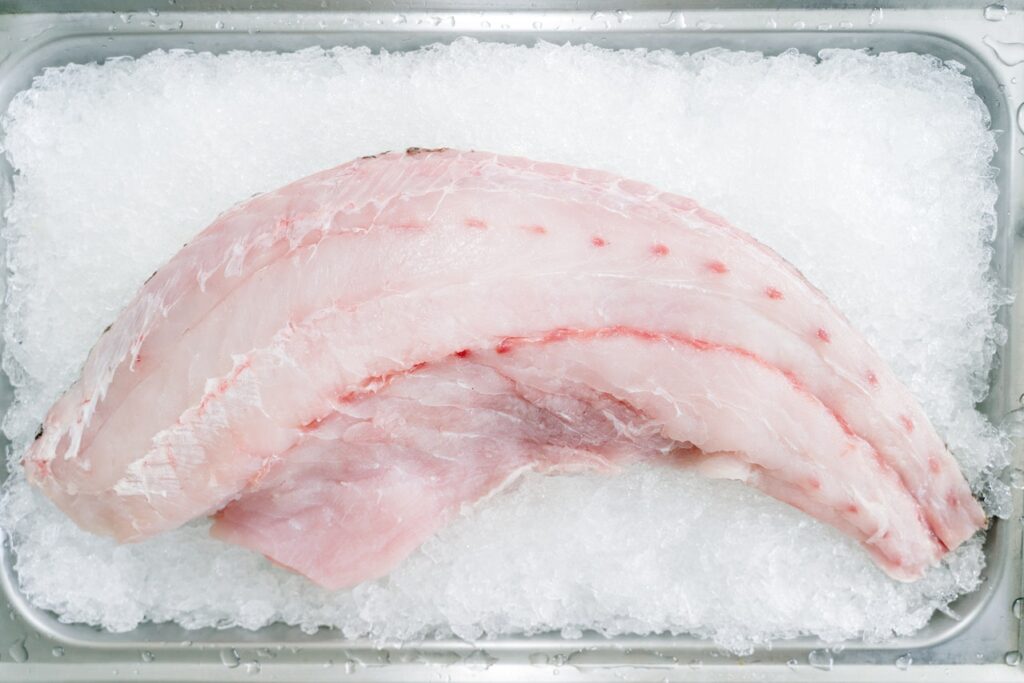

5. Acidic Marinade: Not Just for Flavor
Allowing the fish to marinate in the citrus mix for an extended period can help in reducing bacterial count. While it’s not a full-proof method against all pathogens, a longer marination time can indeed play a role in safety.
6. Maintain Good Hygiene: Don’t Compromise
Ensure all utensils, cutting boards, and bowls are cleaned thoroughly. Wash your hands frequently while preparing the dish. Cross-contamination, especially in a kitchen setting, can be a significant source of foodborne illnesses.
7. Serve Immediately: Time is of Essence
If you’re preparing ceviche at home, serve it immediately after it’s ready. The longer it sits, especially at room temperature, the higher the chances of bacterial growth.
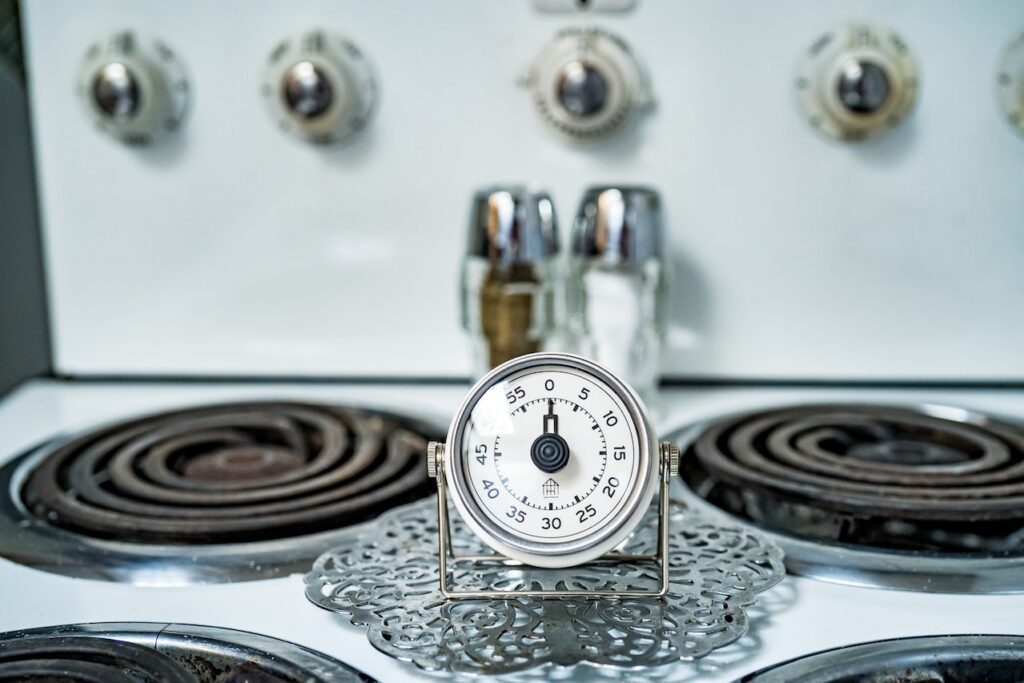

Pregnancy might mean making modifications to our favorite recipes, but it doesn’t signify complete deprivation. With the right precautions and knowledge, you can enjoy modified versions of many cherished dishes, including ceviche.
What Seafood Should be Avoided During Pregnancy?
For seafood lovers, pregnancy often comes with a checklist of dos and don’ts. Navigating through these waters can be a tad overwhelming, but for the safety of both the mother and baby, it’s essential to be informed. Here’s a guide to seafood items you might want to avoid or consume with caution during your pregnancy.
1. High-Mercury Fish: The Top Offenders
High levels of mercury can affect the developing brain and nervous system of your unborn baby. It’s best to avoid fish known to have high mercury concentrations. These include:
- King Mackerel: Often found in steaks or fillets and has a pronounced flavor.
- Shark: While it’s a delicacy in some places, it’s best skipped during pregnancy.
- Swordfish: Known for its meaty texture but ranks high in mercury content.
- Tilefish from the Gulf of Mexico: Different from Atlantic tilefish, which is considered safer.
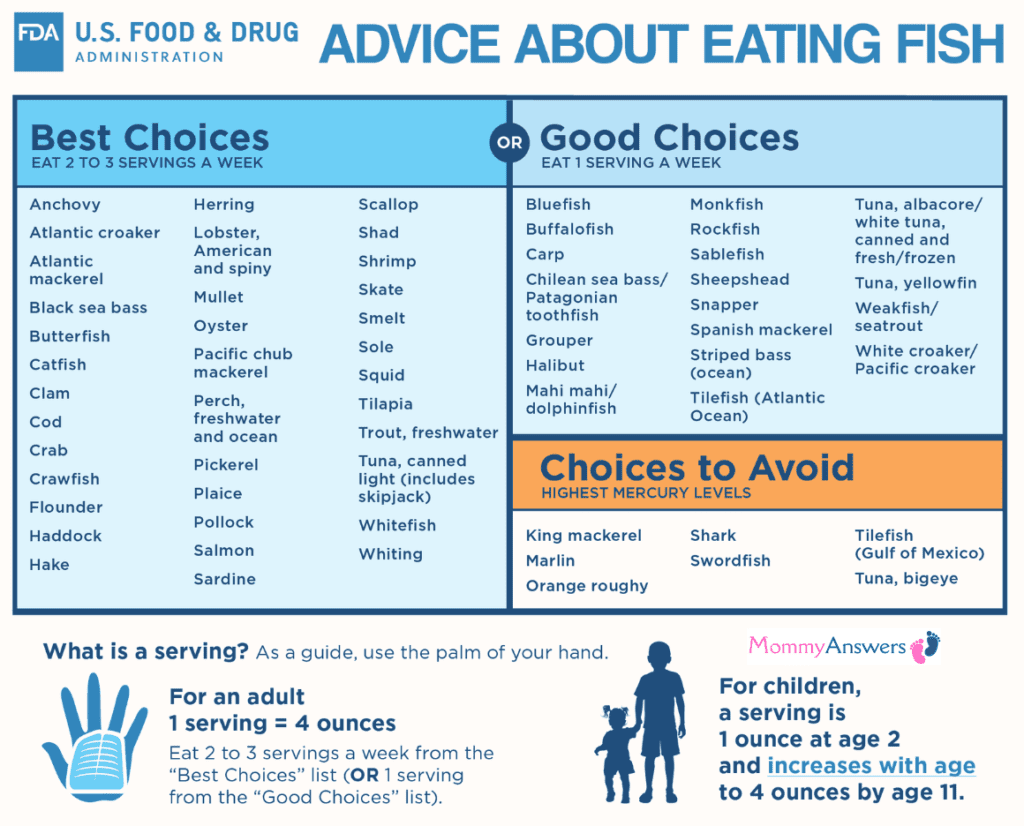

2. Raw or Undercooked Seafood: Potential Pathogen Carriers
Whether it’s sushi, sashimi, or any other dish where the seafood is served raw or undercooked, it’s a no-go during pregnancy. These dishes can carry harmful bacteria and parasites, including Listeria, which can lead to severe complications.
3. Smoked Seafood: Refrigeration Doesn’t Ensure Safety
Unless it’s an ingredient in a cooked dish (like a casserole), smoked seafood that’s found in the refrigerated section should be avoided. Examples include smoked salmon or lox. These can be Listeria carriers.
4. Refrigerated Pâté or Meat Spreads: Not Just Seafood
While this isn’t exclusively about seafood, it’s worth noting. Avoid refrigerated pâté or meat spreads as they can also contain Listeria. Canned or shelf-safe versions are a safer bet.
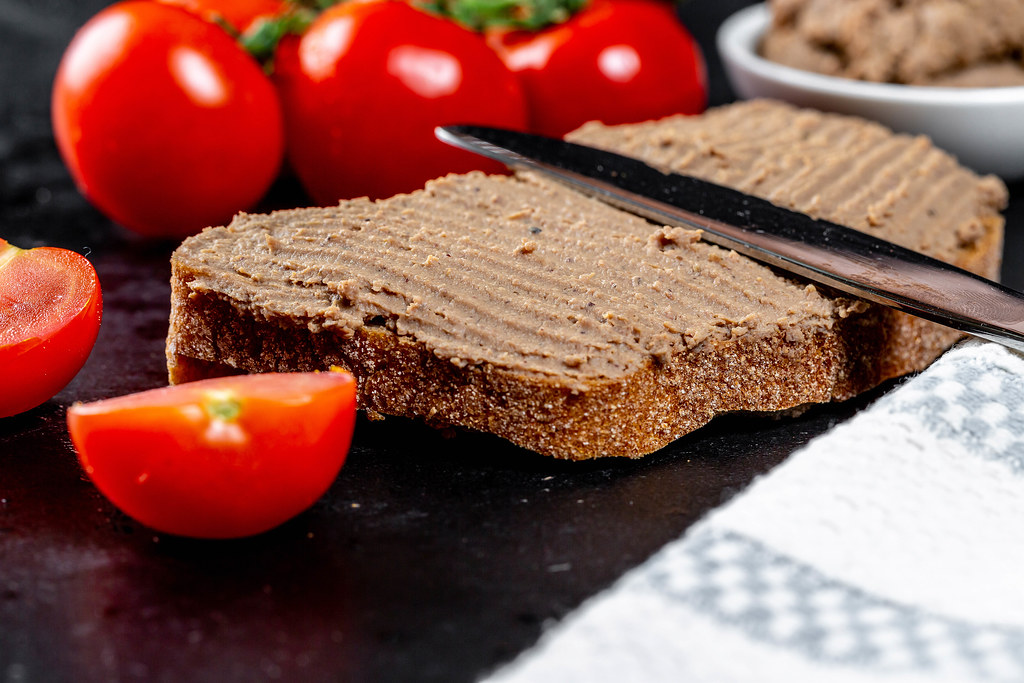

5. Shellfish: Proceed with Caution
While some shellfish can be safe when cooked thoroughly, raw versions like oysters or clams can be harmful due to potential bacterial or viral contamination.
6. Imported Seafood: Quality Control Matters
If you’re unsure about the origins of your seafood, especially if it’s imported, it’s wise to avoid. Standards for fish farming and catching can vary significantly between countries.
7. Local Fish Advisories: Stay Updated
If you’re fond of catching fish from local waters, always check local advisories about the safety of water bodies. Some might have contamination from industrial chemicals or waste.
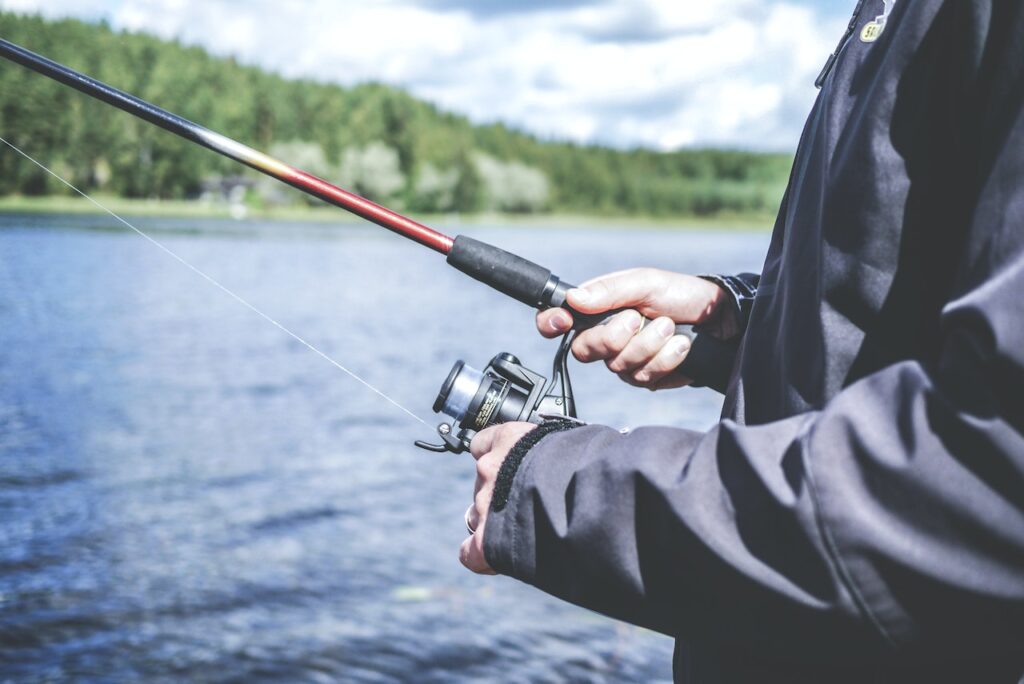

While this list might seem daunting, remember that there’s plenty of seafood that’s both delicious and safe to consume during pregnancy, like well-cooked salmon or shrimp. Staying informed and making conscious choices will ensure that you and your baby enjoy the best health.
What is the Safest Seafood to Eat While Pregnant?
Navigating the world of seafood while pregnant can feel a bit like sailing uncharted waters. But fear not, mama-to-be, there’s plenty of tasty, nutritious seafood out there that’s not only delicious but also beneficial for you and your baby. Here’s your trusty compass to guide you:
1. Salmon: Your Brain-Boosting Buddy
Ah, salmon! It’s not just a treat for your taste buds. Packed with omega-3 fatty acids, it’s a superstar for your little one’s brain and eye development. Whether grilled, baked, or pan-seared, just make sure it’s fully cooked before indulging.
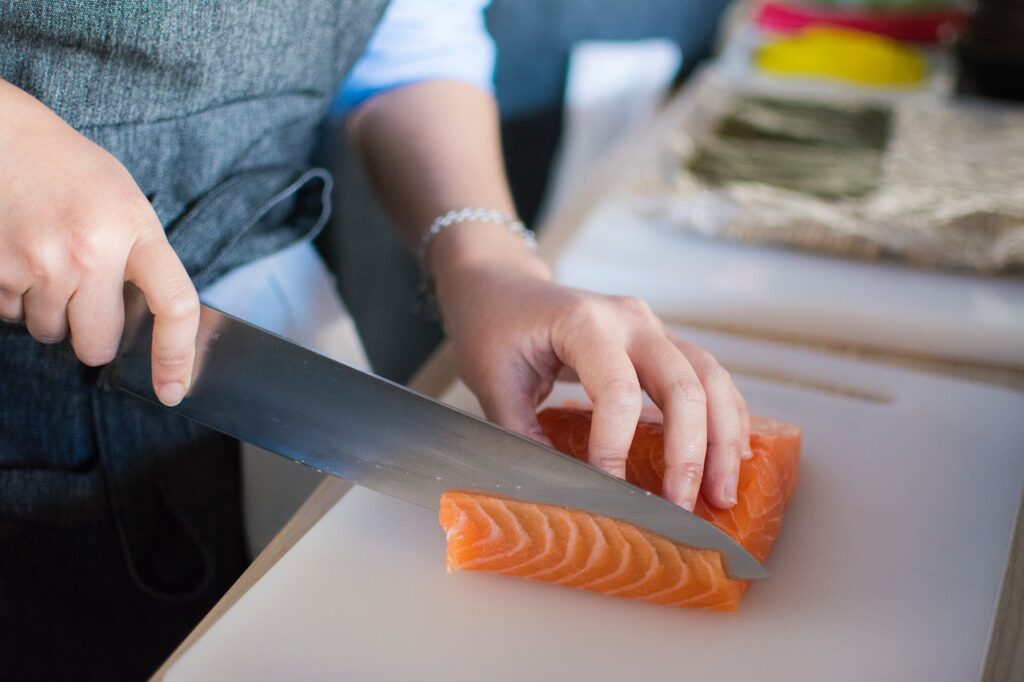

2. Shrimp, Crab, and Scallops: Light and Luscious
Who can resist a good shrimp cocktail or a creamy crab dip? Thankfully, you don’t have to. These seafood favorites are low in mercury. Just make sure they’re cooked until they’re nice and tender, with shrimp turning a rosy pink and scallops getting that perfect opaque finish.
3. Tilapia: The Gentle Choice
Tilapia is like that soft-spoken friend who always has your back. Mild in flavor, it’s often raised in carefully monitored environments, ensuring you get a plate full of nutrients minus the mercury worries.
4. Catfish: A Comforting Classic
Ever had that homey, Southern-style catfish fry? Well, good news! Catfish, when sourced responsibly and cooked well, is a lovely addition to your prenatal menu.
5. Pollock: Versatile and Vibrant
Ever wondered what’s in those yummy fish sticks or your favorite seafood sandwich? Often, it’s pollock. When fully cooked, it’s a safe and tasty option for you.
6. Canned Light Tuna: Quick and Quirky
When you’re in a hurry or just craving a classic tuna salad, go for canned light tuna (typically from skipjack). It’s a lower-mercury alternative to its cousin, albacore.
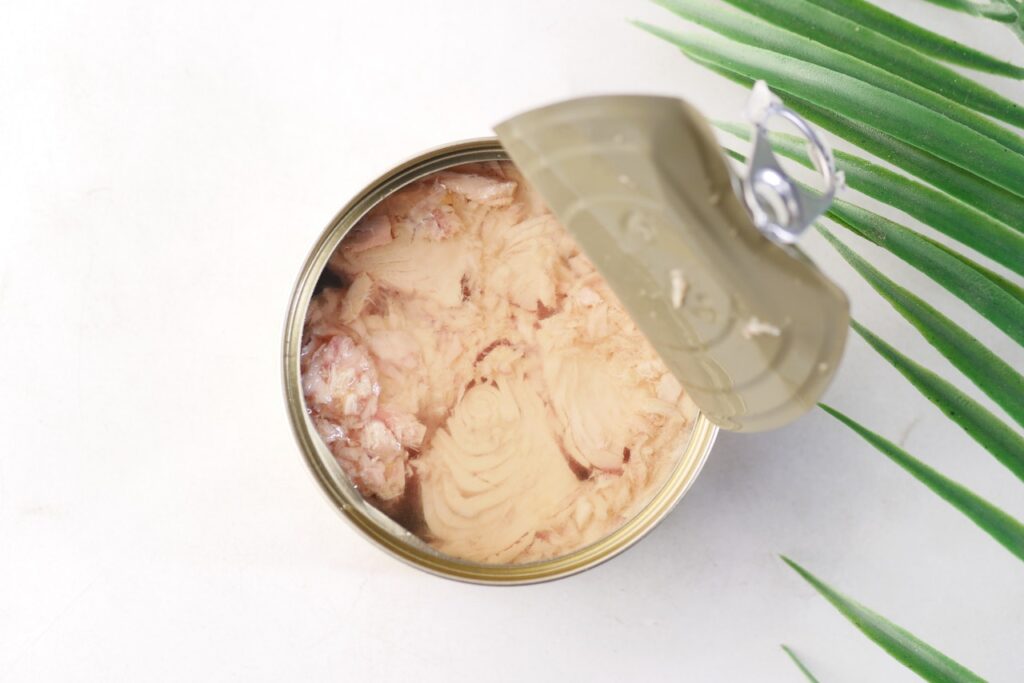

7. Anchovies and Sardines: Tiny Treasures
Size isn’t everything! These little guys might be small, but they’re nutritional powerhouses, brimming with omega-3s and other essential goodies.
8. Herring: A Hidden Gem
Whether you fancy it smoked, grilled, or even pickled, herring is a splendid low-mercury option. Just make sure it’s from a reputable source.
9. Mussels and Clams: Beachy Delights
Think of mussels and clams as the pearls of the seafood world: low in mercury and full of flavor. Just ensure they’re well-cooked before diving in.
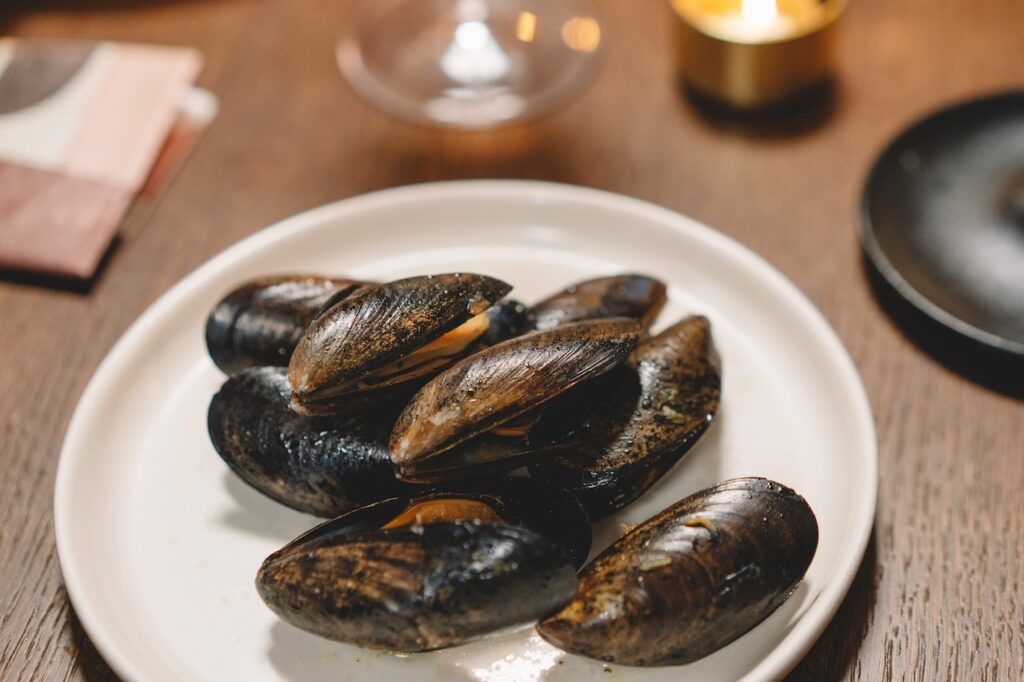

While the sea of pregnancy-safe seafood might seem vast, with the right knowledge, you can dine with both delight and assurance. Just remember: opt for low mercury, make sure it’s well-cooked, and as always, trust your instincts and consult with your healthcare provider if unsure.
Conclusion
Navigating the culinary landscape during pregnancy comes with its set of challenges, and seafood often tops the list of concerns. The burning question, “can you eat ceviche while pregnant?” requires careful consideration.
While there’s no denying the allure of a fresh, tangy bowl of ceviche, it’s essential to prioritize both your safety and that of your growing baby. When those cravings strike, armed with knowledge and perhaps a tweaked recipe, you can make informed choices that keep you both satisfied and safe. Here’s to a healthy, flavorful journey ahead!

